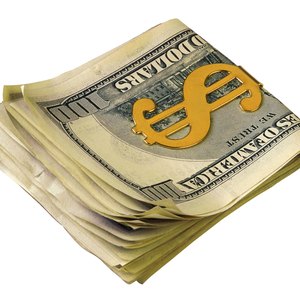
Conventional wisdom holds that a weak dollar is good for stock prices for two primary reasons. First, the weak dollar boosts the prices of U.S. stocks as those stocks decline in foreign currencies. Second, the weak dollar increases overseas profits generated by U.S. firms. Conversely, a strong dollar is believed to be bad for stocks, but investors have ways to survive and thrive when the greenback gains strength.
Why a Strong Dollar Is Problematic for Stocks
Knowing why a strong dollar poses problems for some stocks is must-know information for investors. Fortunately, the premise is easy to understand. Simply put, the U.S. dollar is viewed as a safe-haven asset, meaning it gains favor with investors when other asset classes, including stocks, sell off. Stocks are considered risky assets, but investors can turn to some sectors when the dollar strengthens. Telecommunications and utilities stocks are frequently less volatile than stocks in other sectors; because these companies derive the bulk of their revenue in the U.S., they are less sensitive to the downside in a strong dollar scenario.
Strong Dollar: Bad For Commodities
Commodities are an asset class historically vulnerable to dollar strength. Gold, oil, silver and scores of other raw materials and agricultural commodities are denominated in dollars. When the dollar is strong, each dollar can purchase more commodities, so prices fall. As a result of the falling prices at the hands of the strong greenback, shares of commodities producers also decline, underscoring the notion that sectors such as energy and materials are risky bets when the dollar increases in value.
Stay Away From Emerging Markets
Although not quite as obvious as energy and materials, emerging markets stocks are vulnerable to a strong U.S. dollar because a rising dollar hampers the value of an investor’s overseas holdings. That's because currencies are often traded in pairs: When one member of the pair rises, the other falls. When the dollar rises against, say the Brazilian real, the real falls, diminishing the value of stocks in that market.
Not All Bad
There are advantages to a stronger dollar. A strong dollar means elevated purchasing power for consumers because it suppresses the cost of imports. The strong dollar also forces export-driven companies to become more efficient and find other ways to lower costs, potentially benefiting shareholders along the way. A strong currency can also be a means of attracting more foreign investment.
References
- CNBC: Why Strong Dollar Hurts Stocks, and What You Can Do
- Mint Life: Why a Strong Dollar Matters to You
- Yahoo! Finance. "US Dollar/USDX - Index - Cash (DX-Y.NYB)." Accessed March 12, 2020.
- Econofact.org. "Should the United States Try to Weaken the Dollar?" Accessed March 12, 2020.
- American Express. "The Impact of a Strong U.S. Dollar on Corporate Earnings." Accessed March 12, 2020.
- Economic Policy Institute. "The benefits of a lower dollar." Accessed March 12, 2020.
- Pew Research Center. "What the unemployment rate does – and doesn’t – say about the economy." Accessed March 12, 2020.
Writer Bio
Todd Shriber is a financial writer who started covering financial markets in 2000. He worked for three years with Bloomberg News and specializes in analysis of stocks, sectors and exchange-traded funds. Shriber has a Bachelor of Science in broadcast journalism from Texas Christian University.

